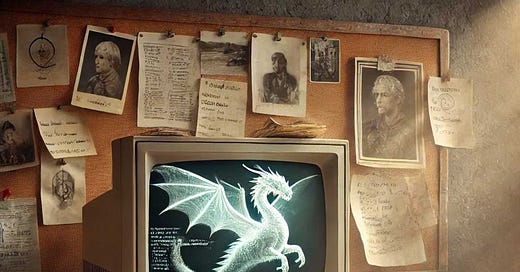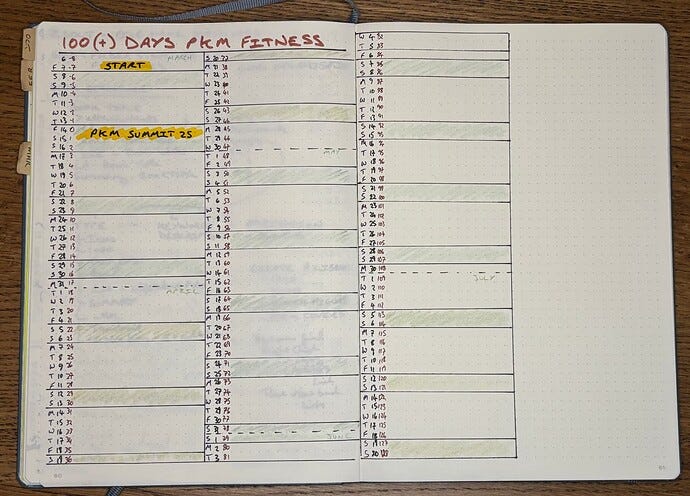T-7: The Catalyst for My PKM Journey
Finding Focus in Transition
There's something about significant career transitions that forces reflection. After nearly three decades in the same role, I found myself at a juncture—a space between what was and what could be.
This transition period brought unexpected challenges. The structured rhythm of professional life gave way to an open canvas, theoretically full of possibility, but practically filled with the demands of life events, family obligations, and the mental load of job searching.
The Resistance Phase
The job market is its own peculiar beast. CV tweaking, cover letters, interviews—each requiring significant mental bandwidth with recovery periods that "soak into the time and space between events like a leech." Despite keeping to a structured schedule and treating the search as a job in itself, something felt missing.
I began to recognise what colleagues had described as a "period of grieving" after leaving long-term roles. Not grief in the traditional sense, but a recalibration—coming to terms with reinvention after a defining career chapter closes.
Finding Flow Again
Amid this transitional fog, I found myself drawn back to an old passion—programming. What began as an attempt to enhance my Obsidian setup took me down unexpected paths, reminding me of that first Dragon 321 computer from my eleventh birthday.
There was something transformative about looping through variables, crunching through collections and debugging code. The hours disappeared. I lost time and gained it at the same time, experiencing that rare combination of challenge and flow that signals meaningful work.
The Turning Point
Another shift, when I registered for the PKM Summit in Utrecht. Connecting with the Personal Knowledge Management community created more than a spark—a catalyst for a clear direction amid the uncertainty.
I found myself drawing up a 100-day plan, a commitment to deliberate practice rather than passive consumption:
What would happen if I dedicated just one focused hour each day to "Digital Fitness"? What if I redirected energy from consumption to creation? This became my hypothesis—my experiment in focused mastery.
Embracing Tiny Experiments
Anne-Laure Le Cunff from Ness Labs2 perfectly captures this approach with her concept of "tiny experiments"—a simple formula of "I will do [action] for [duration]". Drawing from scientific methodology, this framework reduces the pressure and fear of failure that often accompanies ambitious projects.
"As long as you learn something new, you haven't failed." — Anne-Laure Le Cunff
This resonated deeply with me. Success in a tiny experiment isn't about reaching a predefined outcome, but about learning something new, regardless of the result. It provides data about what works and what doesn't, reduces perfectionism, and creates a sense of agency rather than rigid control.
My 100-day Digital Fitness journey is precisely this kind of tiny experiment—a structured space to explore curiosity without the weight of permanent commitment. Whether I discover practices I want to continue indefinitely or approaches that don't suit my workflow, either outcome provides valuable data for growth.
The Cook One Thing Philosophy
This approach aligns perfectly with the philosophy that underpins my work: mastering one focused skill at a time. It's about the power of deliberate practice—recognising that mastery comes not from spreading ourselves thin across many projects, but from giving our full attention to one thing at a time.
The past six months weren't merely a gap—they were preparation. The winter before the spring. The space between insights that allowed ideas to germinate.
As I prepare for the PKM Summit, I'm setting a stake in the ground. These next 100 days represent my commitment to cooking one thing, immersing myself in the practice of Personal Knowledge Management not just as a productivity system, but as a philosophy for meaningful work and learning.
This is where the PKM dragon awakens!
The Dragon 32 was a home computer built in the 1980’s https://en.wikipedia.org/wiki/Dragon_32/64
Tiny Experiments is a book recently published by Anne-Laure Le Cunff from Ness Labs https://nesslabs.com/book





